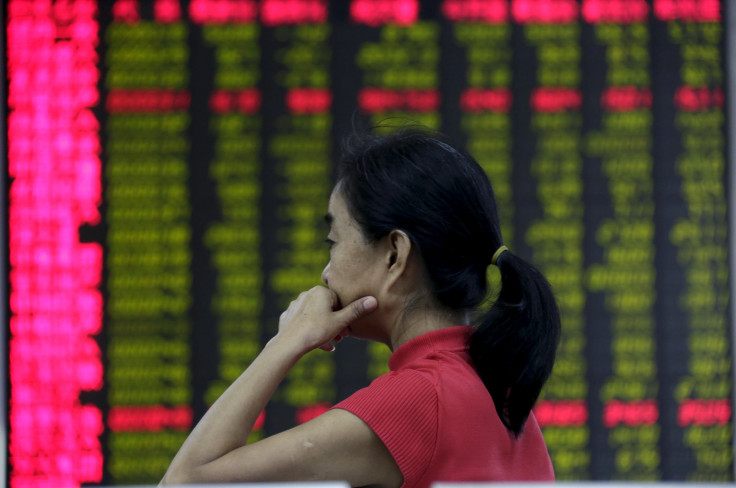China's Market Meltdown: Chinese Stock Collapse Is Not Reason For Global Panic, Economists Say

The stock market collapse in China is worth worrying about, but it is not a reason to panic, economists said Wednesday. Most coverage of the global stock sell-off has pointed towards concerns over China's equities market as the main driver of panic, but in recent days the blame has shifted to concerns over the health of the country’s economy, according to a CNN Money report.
The mistake most investors are making is they are looking at the stock market and worrying about the economy, said Mark Williams, chief Asia economist at Capital Economics. "Investors are overreacting about economic risks in China," said Williams. "The collapse of the equity bubble tells us next to nothing about the state of China's economy."
Even though the Shanghai Composite Index has dropped by more than 40 percent from a mid-June peak, it is still up 35 percent compared to this time last year. That free fall may not be good news for the markets, but it doesn't mean the economy is necessarily suffering.
In fact, China’s economy is doing far better than the fluctuating stock market suggests.
While China’s August manufacturing data showed a 77-month low and disappointing exports in recent months, which are both signs of a slowing economy, other indicators suggest the economy is still performing well. For example, wage growth is strong and consumption is forecast to improve, according to the CNN Money report. "Recent data have been more positive than the headlines might suggest, with large parts of the economy still looking strong," Williams said.
UBS economists echoed that sentiment. Aside from the manufacturing report, there "hasn't been much new information" that would be worthy of a panic, said UBS in a note. An expected GDP growth of 6.8 percent in 2015 and a recent recovery in property sales should reduce the risks on the economy.
The fact that China’s economy would start to slow has been known for a while. Beijing purposefully shifted away from relying on building houses, roads and railways to create growth to an economy fueled by consumer spending, according to the CNN Money report.
To account for that slowing in overall growth, Beijing targeted 7 percent growth in 2015, which it met in the first six months of the year. While it's lower than the 10 percent China regularly grew by in years gone by, it’s still strong and will be enough to maintain employment levels, according to the CNN report.
© Copyright IBTimes 2025. All rights reserved.






















